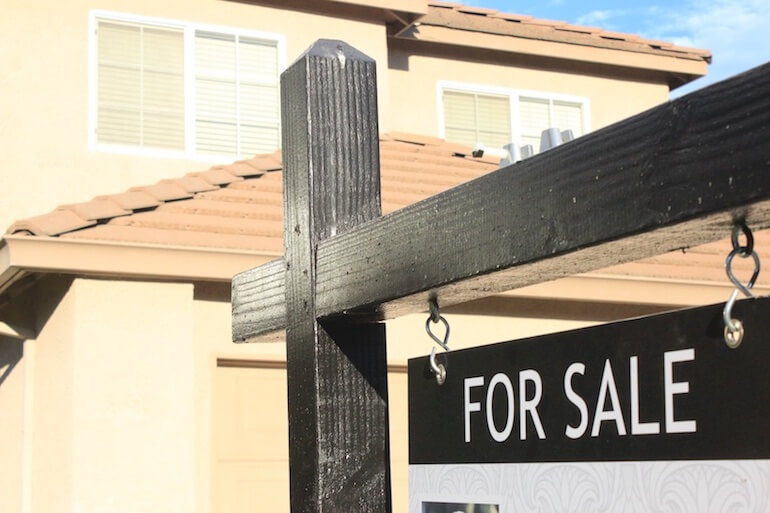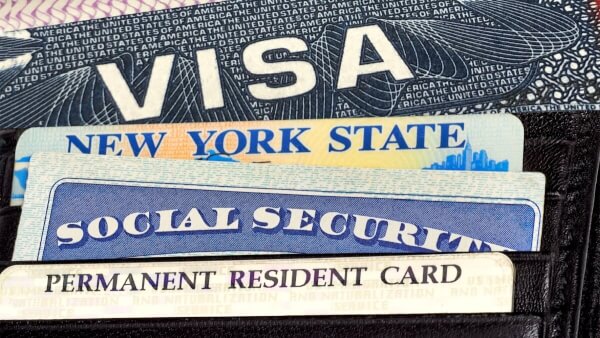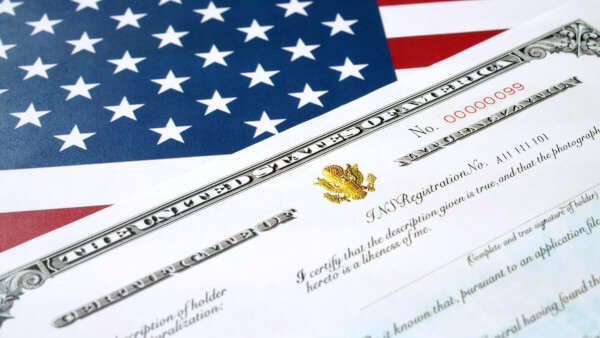Transferring your international driver's license to the US: step-by-step
Your full guide to updating your foreign driver's license to the US.

According to the National Association of Realtors, property purchased by international buyers equals 6 percent of total U.S. home sales in value.
As part of the global marketplace, homes in the United States are in high demand. This could mean great opportunity for you, so it’s important to be prepared financially, whether you’re buying or leasing. If you’re searching for a U.S. home here are 10 common financial mistakes to avoid.
The good news is that the United States allows individuals to purchase or lease a home without being a citizen. In fact, you don’t even have to show a Green card. But there is one thing you’ll need to secure before moving forward, and that’s an Individual Tax Identification Number (ITIN). This is a tax-processing ID number that allows foreign nationals to be able to purchase property and function within the U.S. economy.
To obtain an ITIN simply fill out Form W-7 and mail in the request to the Internal Revenue Service. Please note that when filling out this form you will be required to give a valid reason for requesting an ITIN. And depending on your nationality you may also have to provide a photo ID, visa or passport.
A large part of finding a home or apartment in the United States relates to getting pre-approved for financing. This is especially important if you’re a homebuyer as you want to work with a finance company who can get you the best interest rate. In addition, if you’re unable to obtain financing then there’s no reason to move forward with the homebuying process. You must first improve credit in order to obtain the funding you need.
The same advice applies to leasing an apartment. Before beginning your apartment search, reach out to various landlords to make sure you can afford their terms. Some landlords charge a security deposit to be paid upfront, which is usually your first month’s worth of rent (or in some cases more). Your new landlord will also request to see past tax returns to verify employment status, as well as other proof of income.
Whether you’re buying a home in the U.S. or simply leasing an apartment for rent, a common mistake to avoid is not reading the contract terms carefully. You could end up paying unnecessary fees or agreeing to terms you don’t like.
Some considerations include understanding what all is included with the rent or mortgage payment. Are there Homeowner’s Association fees (HOA) that must be paid every month? Are the utilities like electricity and internet included with the monthly rent? Read the entire contract before signing it. If you have questions, direct them to the real estate agent as they will be able to give you unbiased advice.
Before beginning your journey to find a U.S. home you need to start with a sensible budget plan. How much house can you afford? Too many new homebuyers and renters get caught in the trap of letting the finance company tell them how much they can afford, simply because they’re pre-approved for a certain amount. Don’t fall for this common financial mistake!
Never take on more financial responsibility than you feel comfortable with. A good rule of thumb is to set aside no more than 25-30 percent of your monthly income every month to go towards housing costs. This includes the monthly mortgage or rent payment, costs for repairs or upgrades and home or renter’s insurance expenses.
Speaking of additional housing costs, this is another common financial mistake to avoid when finding a home in the United States. In the UK, for example, a real estate agent usually charges a commission fee of around 3 percent. In the U.S. however, there may be multiple real estate agents involved causing the commission fee to be upwards of 6 percent or more. This can really eat into your budget.
Other hidden fees that you may unaware of include appraisal fees of the property before purchasing or leasing, closing costs, property taxes, parking fees and even moving expenses. Take your time before leasing a new home before making your decision to move forward. You don’t want to be surprised by any hidden costs.
While you’re looking for your dream space, make sure it’s in a nice neighborhood. Nothing is more frustrating than finding a great place to live only to be disappointed by the location. This is especially important if you expect to have children in the future. How will the neighborhood effect them? Are there good schools in the area?
Another important consideration for moving to a new area includes researching local bus stops and other forms of public transportation. This could save you a good amount of money on gas and car maintenance over time. And don’t forget about the crime rate and proximity to shops or restaurants. You can always update your house but you can’t change the location you live in.
Moving to a new place not only comes with additional costs, but it means transferring or discontinuing many of your monthly bill services. Utility providers need to be contacted ahead of time so you can schedule a date to transfer over your internet, cable TV or electricity accounts.
Not managing this properly can cause a bit of a headache when it comes to moving-in day. You could be without electricity, running water or heat/cooling. In addition, many individuals do various amounts of work at home, so not having internet access can be devastating for your productivity.
Likely one of the most important factors that impact the buying or leasing process of finding a home in the U.S. is your credit history. Both your history with borrowing and repaying money equates to a credit score that financial companies and landlords look at it order to determine your eligibility for getting a home.
As an expat, you won’t have a credit history when first moving to the United States so it’s smart to build up one in a wise but efficient way. The best way is simply pay all of your bills on time and borrow credit responsibility -- never overextend your finances. And be sure to check your credit score frequently to ensure all the information is correct and moving in the right direction.
Check out these resources that allow individuals to view their credit score for free:
As a homeowner or renter, you want to keep your possessions protected, from nature, accidents and thieves. Not getting insurance coverage for your new place is a common financial mistake to avoid as it could be devastating for your finances.
A simple online search will yield comparison sites where you can apply for the best home or renter’s insurance. The mortgage company may also suggest the amount of coverage you need in accordance with the loan amount. As for renter’s insurance, you basically add up the total value of your possessions and make sure the policy covers the entirely.
Once you’ve secured the contract, and are ready to move into your new place, don’t forget to change your address. Of course, you’ll want to share your new address with friends and family but it’s also important to update any bills and financial accounts. The process is pretty simple but nonetheless important.
That’s it! Now you’ll receive all of your bills, financial documents and other important mail at your new home address.
*Please see terms of use and product availability for your region or visit Wise fees and pricing for the most up to date pricing and fee information.
This publication is provided for general information purposes and does not constitute legal, tax or other professional advice from Wise Payments Limited or its subsidiaries and its affiliates, and it is not intended as a substitute for obtaining advice from a financial advisor or any other professional.
We make no representations, warranties or guarantees, whether expressed or implied, that the content in the publication is accurate, complete or up to date.

Your full guide to updating your foreign driver's license to the US.

Whatever your reason is for moving to the US, this guide aims to help you figure out the most important costs you'll face when you live there.

Find all you need to know about getting a personal loan for H-1B visa holders in this guide.

Everything you need to know about the US certificate of naturalization.

The US welcomes large numbers of new arrivals every year — and getting a great job to both gain experience and set down roots is a core part of the American...

Find everything you need to know about the US citizenship test, including the USCIS questions and answers.